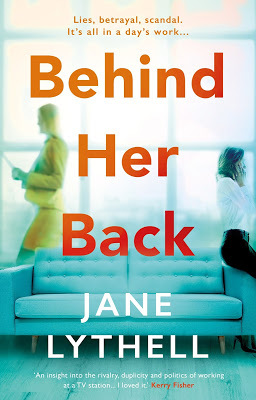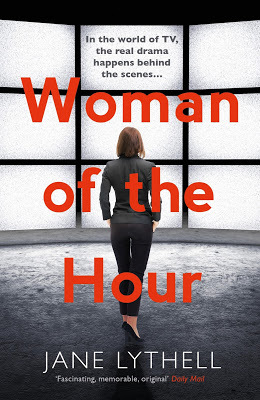
I had seen a full page newspaper advertisement for vacancies at the soon to be launched TV-am breakfast station. The ad said: Join us and make history.
I applied and three interviews later (really, it was a drawn out process) I was told I had a job as a junior features journalist at the station. I was thrilled to be part of the birth of breakfast television in the UK.
Well, the reality turned out to be very different from my expectations. TV-am’s
Good Morning Britain launched two weeks after BBC
Breakfast Time began. TV-am was highbrow, more Guardian and The Times, whereas BBC
Breakfast Time was cosy and populist with Frank Bough in jumpers. The BBC did well and TV-am crashed in the ratings.

Our programme editors scanned the ratings every morning and the sense of panic at the station was rising daily. Editors screamed at young journalists who would sob in the toilets. Other ambitious and thicker-skinned journalists responded by grabbing their chance to get in front of camera. Back-stabbing was rife. Established presenters were junked and new faces fought their way to the top. Live TV seemed to bring out the worst in people and loyalty counted for nothing.
This is the world of my main character Liz Lyon and the subject of both
Behind Her Back and
Woman of the Hour. So how is writing about the TV industry different to working in it?
The workplace is full of dramatic possibilities and throws up ethical dilemmas, competitive behaviour, secrets and betrayals. Perhaps the biggest difference in writing about this world is in the pace at which things happen in my novel. There is certainly a feverish and high tempo atmosphere in a TV station that broadcasts live shows. I experienced this first-hand and saw how it breeds conflict and drama. However in telling Liz Lyon’s story I have racked up the pace even more at which conflict and strife occurs so that Liz is under almost constant pressure.

Liz Lyon is both confidante and team leader and the person tasked with controlling the conflicts and tantrums that flare up off-air. She often finds herself in a situation where characters lie to her, or plot against her, and she has to overcome these challenges. For example Liz is the only person who knows the identity of the father of Fizzy Wentworth’s baby. This is an explosive secret as Fizzy is the star of StoryWorld TV and the father is married. The revelation of this secret would cause a scandal for the station. This secret oppresses Liz throughout the book and culminates in a crisis. This is the stuff of novels and is what keeps the reader turning the pages, wanting to know how this situation will unravel.
I loved writing the character of Fizzy Wentworth. She is so self-absorbed and is frequently unreasonable and contrary in her behaviour. Fizzy is used to being in the limelight and this has accentuated her egotistical traits. For example she thinks the royal photographer should take shots of her baby son! I could see Fizzy’s house, her clothing, her taste in food and drink clearly and it was a pleasure to write her. People have asked me whether Fizzy was based on any of the TV presenters I worked with. She wasn’t, but she was influenced by a number of on-screen presenters I had observed in my years in TV.
As for my heroine Liz, I wanted her home life with her daughter Florence to be a strong contrast to her work life. They live in a garden flat in Chalk Farm which is Liz’s haven. Whereas work-Liz is (usually) calm, capable and in control, home-Liz is far more emotional. I was keen to show both sides to make Liz an authentic character.

Television is a seductive industry. You feel you are at the centre of things because you hear of news and events before most people. I worked as a TV producer for fifteen years and was also a lone parent to my daughter. It was a pang to give this up. But it is a burn-out industry. You are expected to work until the show is ready. The hours are never predictable and this made it difficult for me as a lone parent. I left my career in TV when my daughter Amelia was nine-years-old because I knew I was not spending enough time with her.
But in
Behind Her Back I really enjoyed writing about the TV industry as opposed to working in it. This piece first appeared on the blog
Swirl & ThreadBehind Her Back and
Woman of the Hour are published by Head of Zeus.
 newest »
newest »
 newest »
newest »
 I am reading Behind her Back & it's proving a wonderful & exciting sequel to Woman of the Hour. Things are hotting up & The amazing descriptive style again makes you feel part of the action. Yet again I'm feeling some empathy for the 'villains of the piece' & I want to read on. I am thoroughly enjoying this Brilliant Book!
I am reading Behind her Back & it's proving a wonderful & exciting sequel to Woman of the Hour. Things are hotting up & The amazing descriptive style again makes you feel part of the action. Yet again I'm feeling some empathy for the 'villains of the piece' & I want to read on. I am thoroughly enjoying this Brilliant Book!







